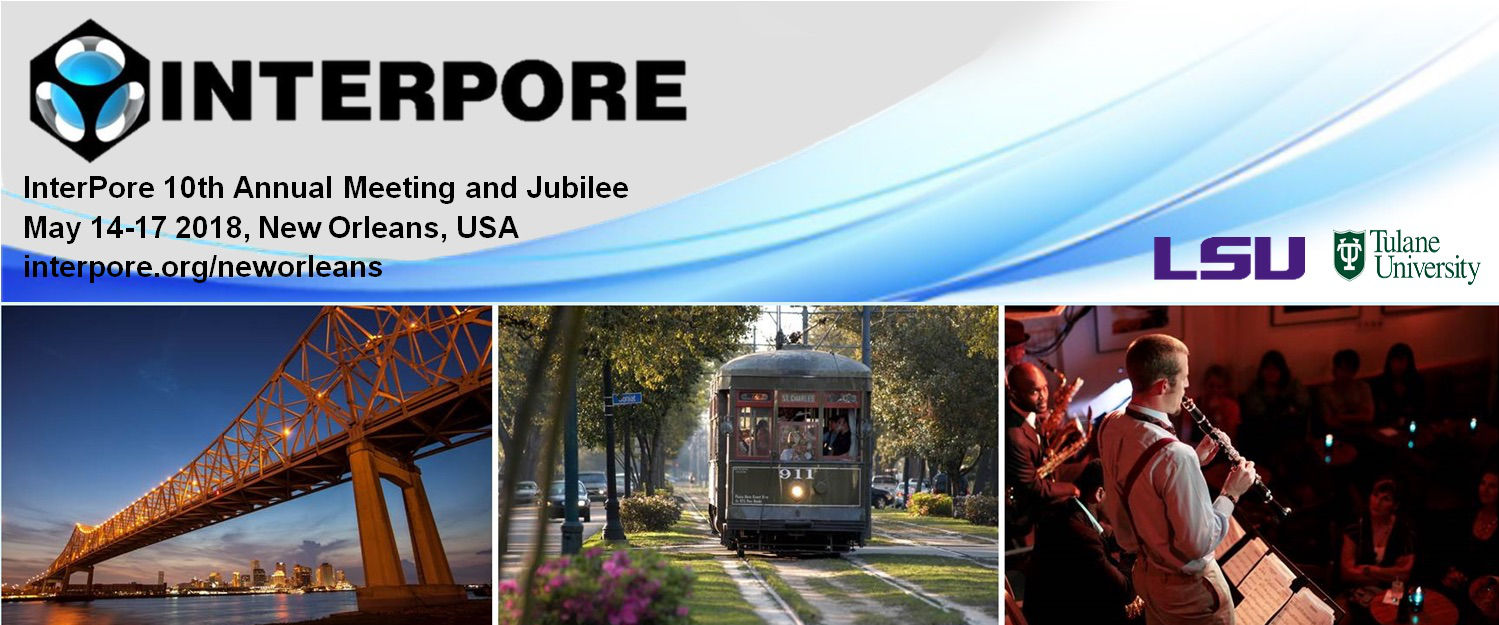Speaker
Description
We consider the problem of advection, matrix-diffusion and bimolecular reactions in fracture-matrix systems, with two example applications: (i) Weathering reactions in fractured bedrock and (ii) in-situ chemical oxidation (ISCO) for remediation of fractured rock. In both cases, a reagent (a weathering agent such as H+ or dissolved oxygen, or permanganate in the case of ISCO) are supplied through a fracture, and react with a second species (immobile mineral species in the case of weathering reactions, or TCE/PCE in the case of ISCO) initially contained in the fracture-matrix system. In both cases, moving reaction fronts form and propagate along the fracture and into the rock matrix. The propagation of these reaction fronts is strongly influenced by the heterogeneity/discontinuity across the fracture-matrix interface (advective transport dominates in the fractures, while diffusive transport dominates in the rock matrix). We present analytical solutions for the concentrations of the oxidant/weathering agent, weathering mineral or TCE and natural organic matter; and the propagation of the reaction fronts in a fracture-matrix system. Our approximate analytical solutions assume advection and reaction dominate over diffusion/dispersion in the fracture and neglect the latter. In the ISCO problem, the behavior of the reaction-diffusion equations in the rock matrix is posed as a Stefan problem where the supplied oxidant reacts with both diffusing (TCE) and immobile (natural organic matter) reductants. Our analytical solutions establish that the reaction fronts propagate diffusively (i.e. as the square root of time) in both the matrix and the fracture. Our analytical solutions agree very well with numerical simulations for the case of uniform advection in the fracture. In the context of the ISCO problem, we also present extensions of our analytical solutions to non-uniform flows in the fracture by invoking a travel-time transformation. These non-uniform flow solutions are relevant to field applications of ISCO, which employ forced-gradient flow systems. Our approximate analytical solutions are relevant to a broad class of reactive transport problems in fracture-matrix systems where moving reaction fronts occur, and may be generalized further to consider multiple interacting species.
| Acceptance of Terms and Conditions | Click here to agree |
|---|


